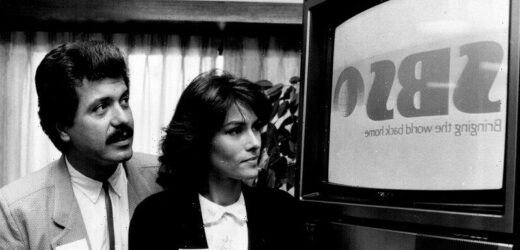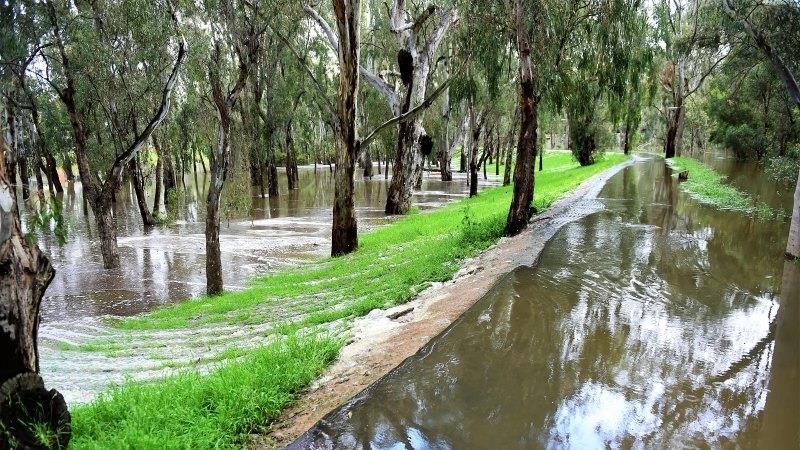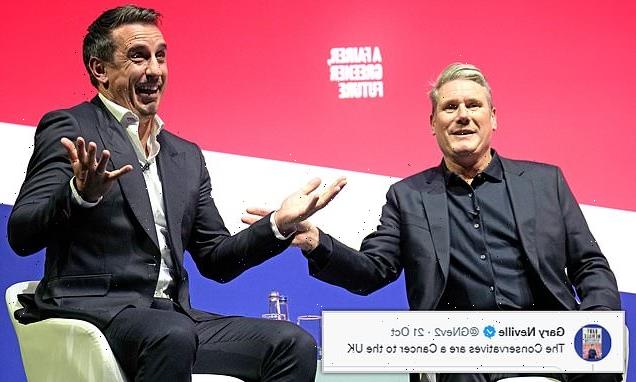First published in The Age on October 25, 1980
New channel launched in `Star Wars’ style
Multicultural television’s digital clock ticked off to 6.30 pm and — after fanfares and a ‘Star Wars’ — style introduction Melbourne’s newest TV station began transmission last night.
News presenters George Donikian and Patrice Newell in the Elizabeth Street headquarters of SBS in 1985.Credit:Antonin Cermak
Bruce Gyngell made it a personal double by being the first face on the new station, Channel 0/28, as he told viewers his was the first face on Australian TV, on 16 September 1956.
English-speaking viewers who thought “multicultural” TV could mean hours of non-comprehension, were wrong. Apart from some infrequent lapse, the first 90 minutes of broadcasting was in English.
Non-English programmes will be subtitled, but the messages from Mr Gyngell and the Prime Minister, Mr Fraser, were not translated through subtitles to non-English speakers who may have tuned in.
Mr Gyngell, the consultant to the Special Broadcasting Service, which is running Channel 0/28, said that 25 per cent of television sets in Australia were owned by people born outside English-speaking countries.
The sample of planned programmes last night showed wide range of Italian, Spanish, Slavic, Greek and French programmes including comedies, historical drama, opera and variety shows.
Mr Gyngell, the former chairman of the Australian Broadcasting Tribunal, declared TV would never be the same. Channel 0 would entertain, appeal, inform and educate. Just as Australia was first with eight-hour working days, social services and universal suffrage, so it was now pioneering communal-harmony through cultural enrichment.
Bruce Gyngell, head of the SBS, in 1980.Credit:Philip Wayne Lock
The first night’s emphasis on the English language underlines the main question about Channel 0’s target audience. Will it attract more English speakers than ethnic groups? Organisers admit that some migrant source countries do not produce colour programmes or sell programmes overseas, which means they will have only a small share of Channel 0’s time.
But big production centres in Italy and France, which have been closed to Australian TV because of language barriers, will become accessible, via subtitles, to Australian viewers.
Some ethnic spokesmen are concerned these shows have squeezed out information services for migrants on the law, health and welfare, as well as English lessons.
Ethnic communities yesterday welcomed the establishment of the new TV service, but expressed reservations about the Special Broadcasting Service. The SBS has been repeatedly criticised as being out of touch with migrant issues, susceptible to Government intervention and prone to a “travelogue” approach.
Legislation for the Independent and Multicultural Broadcast Corporation intended to overcome some of these problems was abandoned after a row in the Senate. As a result ethnic groups are especially keen to see they have a say in programming decisions.
Dr Heinrich Stefanik, secretary of the Federation of Ethnic Community Councils, said the new service would certainly provide better services for ethnic groups than the commercial stations and the ABC had provided in the past. But he feared that setting up a new body especially for ethnic TV needs would create the impression that multiculturalism was only for ethnic groups.
Some people believe the SBS money could have been better spent improving existing stations.
Most Viewed in Culture
From our partners
Source: Read Full Article




